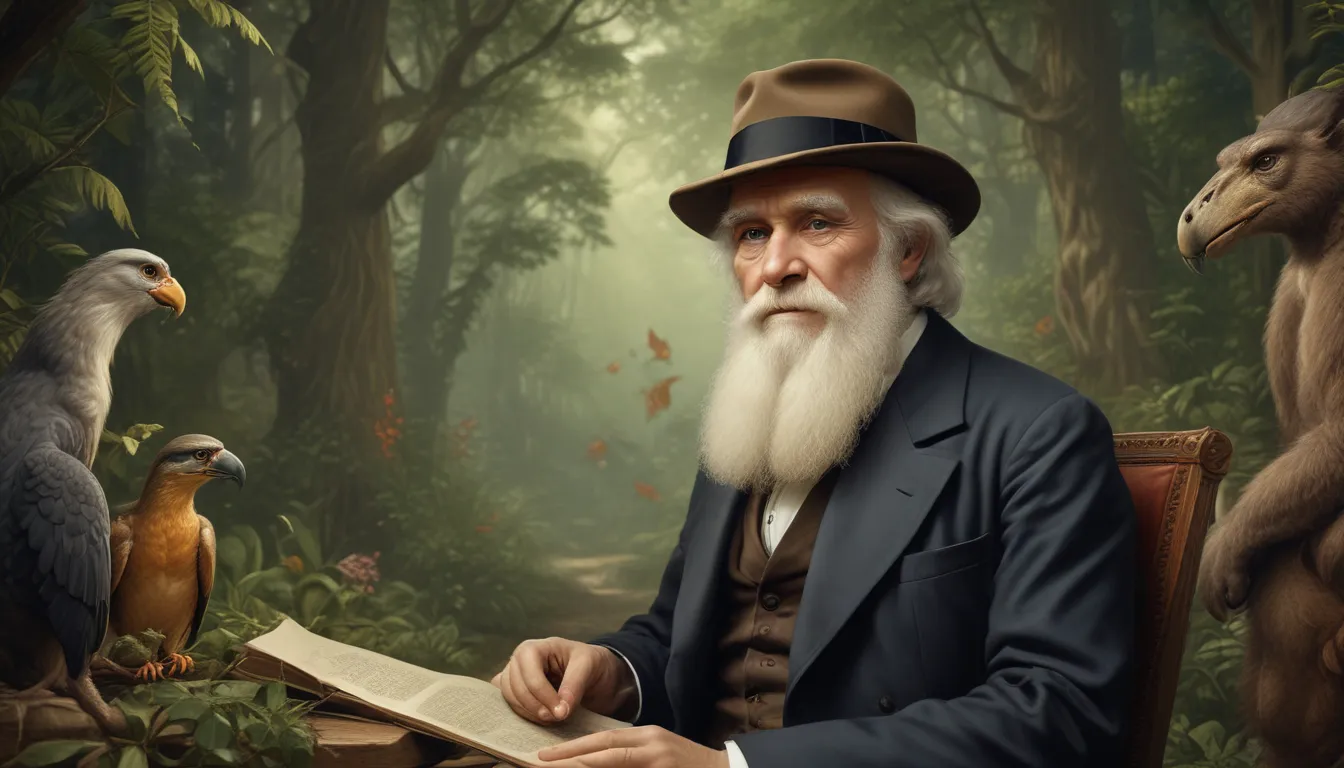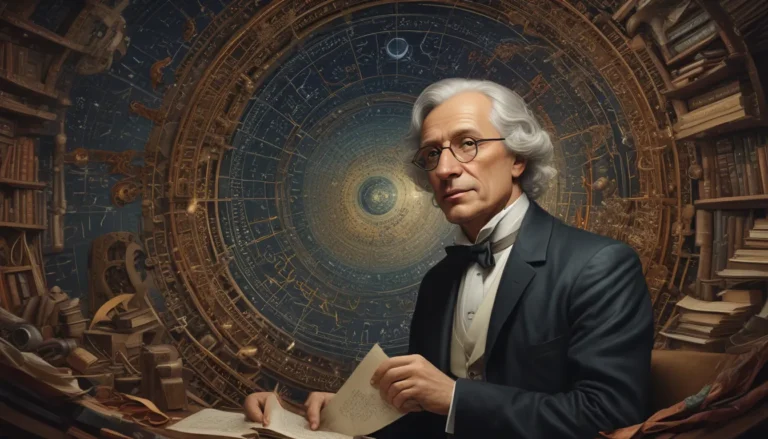The images in our articles may not match the content exactly. They are used to grab your attention, not to show the exact details in the text. The images complement the text but do not replace it.
Charles Darwin remains a prominent figure in the history of science, renowned for his groundbreaking theory of evolution and natural selection. While his contributions to biology are well-known, there are numerous intriguing facts about Darwin’s life and work that shed light on his legacy. In this article, we will delve into 18 enigmatic facts about Charles Darwin, exploring his early interests, scientific journey, personal struggles, and lasting impact on the world. From his childhood fascination with nature to his extensive research on barnacles, these facts offer a glimpse into the captivating life of this iconic scientist.
Unveiling Charles Darwin’s Journey:
-
Darwin’s Early Fascination with Nature: From a young age, Charles Darwin displayed a profound interest in the natural world, collecting insects, shells, and minerals during his explorations as a child.
-
The Voyage on HMS Beagle: In 1831, Darwin embarked on a transformative five-year expedition aboard the HMS Beagle, traveling around the world and collecting specimens that would shape his evolutionary theories.
-
Discovery of Galapagos Islands: Darwin’s visit to the Galapagos Islands during his voyage proved pivotal, as his observations of unique animal species on the islands influenced the development of his theory of natural selection.
-
Publication of “On the Origin of Species”: In 1859, Darwin published his seminal work “On the Origin of Species,” introducing his theory of evolution and natural selection to the world and revolutionizing the field of biology.
-
Debates and Controversies: Despite its revolutionary nature, Darwin’s theory faced opposition from the church and conservative members of society, sparking debates that continue to this day.
-
Ongoing Research: Even after the publication of his groundbreaking book, Darwin continued his research and exploration, producing numerous works that expanded on his evolutionary theories.
-
Darwin’s Correspondence Network: Darwin maintained a vast network of correspondents, including fellow scientists and intellectuals, through which he exchanged ideas and gathered data to support his theories.
-
Intriguing Interests: While renowned for his work on evolution, Darwin also had a keen interest in the study of barnacles, devoting eight years to studying and classifying them.
-
Exploring Human Evolution: In his book “The Descent of Man,” Darwin applied his evolutionary theories to human beings, exploring the origins of mankind and challenging traditional notions of human exceptionalism.
Legacy and Influence:
-
Honored Legacy: Charles Darwin’s contributions to science have been widely recognized, with his face appearing on the British ten-pound note and numerous awards and academic positions bearing his name.
-
The “Darwin Awards”: A humorous tribute to survival of the fittest, the “Darwin Awards” celebrate individuals who have inadvertently removed themselves from the gene pool through their own foolish actions.
-
Earthworm Fascination: Darwin’s final work, “The Formation of Vegetable Mould Through the Action of Worms,” highlighted his fascination with earthworms and their role in shaping the environment.
-
Personal Connections: Darwin married his first cousin, Emma Wedgwood, establishing a strong link between the Darwin and Wedgwood families, two prominent names in British history.
-
Health Struggles: Throughout his life, Darwin battled various health issues, including a mysterious illness that plagued him for years, impacting his well-being.
-
Private Life: Despite his scientific pursuits, Darwin valued his family life, raising ten children with his wife Emma and finding solace in the tranquility of Down House.
-
Galapagos Islands Legacy: Darwin’s revolutionary insights continue to influence the biodiversity of the Galapagos Islands, serving as a living testament to his theory of evolution and natural selection.
-
Continued Impact: Charles Darwin’s theories remain integral to modern biology, influencing scientific research and providing valuable insights into the origins and diversity of life on Earth.
Charles Darwin’s Enduring Influence:
In conclusion, Charles Darwin’s legacy as a pioneering scientist and thinker endures, shaping our understanding of the natural world and inspiring generations of researchers. His relentless pursuit of knowledge, coupled with his innovative theories on evolution and natural selection, has left an indelible mark on the scientific community. As we reflect on the enigmatic facts about Charles Darwin, we gain a deeper appreciation for his contributions to science and the lasting impact of his work.
FAQs about Charles Darwin:
-
Major Contributions: Charles Darwin’s significant contributions to science include the development of the theory of evolution through natural selection, research on species adaptation, and the concept of common ancestry.
-
HMS Beagle Voyage: Darwin’s voyage on the HMS Beagle allowed him to study diverse specimens worldwide, shaping his understanding of species adaptation and laying the groundwork for his theories.
-
Scientific Impact: Darwin’s theory of evolution challenged existing beliefs, presenting a new framework for understanding life’s diversity and revolutionizing the field of biology.
-
Acceptance of Theory: Initially met with skepticism, Darwin’s theory gained acceptance over time as evidence and research supported the concept of evolution through natural selection.
-
Current Research: Darwin’s work continues to influence scientific research, providing a foundation for studying ecological and evolutionary processes that shape life on Earth in fields such as genetics and ecology.
Whether exploring the mysteries of the natural world or challenging prevailing beliefs, Charles Darwin’s enduring legacy serves as a testament to the power of scientific inquiry and discovery. As we celebrate his life and work, we are reminded of the importance of curiosity, critical thinking, and the pursuit of knowledge in advancing our understanding of the world around us. Darwin’s profound impact on biology and the scientific community continues to inspire and guide researchers as they unravel the intricacies of life on Earth.






